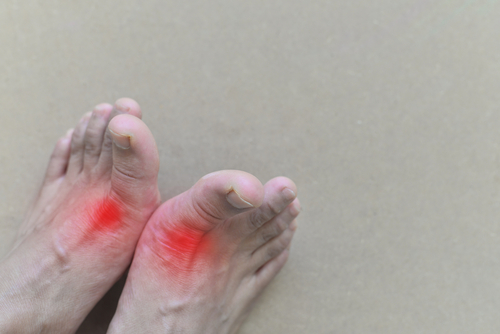Gout may up dementia risk in elders: Study
IANS Jun 16, 2018
Elderly people suffering from gout may have 17-20 per cent higher risk of dementia, suggests a new study by a team that includes an Indian-origin researcher.

Gout -- a very common condition -- is caused by deposits of crystals of a substance called uric acid (also known as urate) in the joints, which leads to inflammation. Periods of time when patients are experiencing gout symptoms are called flares. Flares can be unpredictable and debilitating, developing over a few hours and causing severe pain in the joints.
"Our study found a considerable increased risk of dementia associated with gout in the elderly," said co-author Jasvinder Singh, a Professor of Medicine and Epidemiology at the University of Alabama at Birmingham, in the US. For the study, presented at the Annual European Congress of Rheumatology (EULAR 2018), the researchers included 1.23 million Medicare beneficiaries, of which 65,325 had incident dementia.
In an analysis which was adjusted for various potential confounding variables including demographics, comorbidities and commonly used medications, the results showed that gout is independently associated with a significantly higher risk of dementia. The association was larger in older age groups, females, black race, and people with higher medical comorbidity.
Subgroup analyses indicated that gout was associated with a significant 20-57 per cent increase in dementia in patients without key comorbidities; coronary artery disease (CAD), hyperlipidemia, cardiovascular disease, diabetes or hypertension. However, this was not the case in patients with each of these comorbidities, except in patients with CAD, the researchers said. Guidelines for the treatment of gout recommend lowering uric acid levels, although maintaining too low levels is a concern because uric acid is thought to protect the brain, they added. "Further study is needed to explore these relationships and understand the pathogenic pathways involved in this increased risk," Singh noted.
-
Exclusive Write-ups & Webinars by KOLs
-
Daily Quiz by specialty
-
Paid Market Research Surveys
-
Case discussions, News & Journals' summaries